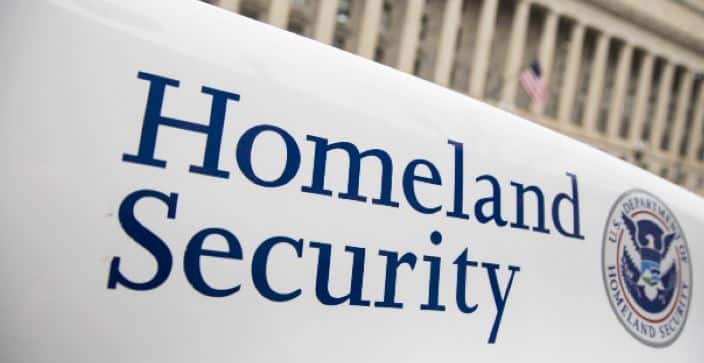
We previously discussed the defunct Disinformation Governance Board and its controversial head Nina Jankowicz. After the outcry over the program, Homeland Security Secretary Alejandro Mayorkas finally relented and disbanded the board while insisting that it was never about censoring opposing views. Jankowicz has sued over the portrayal of her views. Now, Americans for Prosperity Foundation (AFPF) has exposed just how broad the scope of the censorship efforts were under the board in combatting “misinformation, disinformation, and malinformation (MDM). This range of authority in what the agency called the “MDM space,” included targeting views on racial justice and the disastrous withdrawal from Afghanistan.
New documents obtained under the Freedom of Information Act (FOIA) requests show that the Department of Homeland Security (DHS) argued that the agency could regulate speech related to “the origins of the COVID-19 pandemic and the efficacy of COVID-19 vaccines, racial justice, US withdrawal from Afghanistan, and the nature of US support to Ukraine” as well as “irregular immigration.”
Those subjects stretch across much of the “space” used for political speech in the last few years.
Notably, within DHS, Jen Easterly, who heads the Cybersecurity and Infrastructure Security Agency, extended her agency’s mandate over critical infrastructure to include “our cognitive infrastructure.” The resulting censorship efforts included combating “malinformation” – described as information “based on fact, but used out of context to mislead, harm, or manipulate.” I testified earlier on this effort.
So DHS asserted the authority to target viewpoints on racial justice, Ukraine, and other political subjects, including views based on fact but viewed as misleading in context.
What is also troubling is the continued effort to conceal these censorship activities. Homeland redacted much of this information on a now defunct board under FOIA Exemption 7(E), which protects “techniques and procedures for law enforcement investigations or prosecutions, or would disclose guidelines for law enforcement investigations.” That claim is itself chilling.
After the demise of the board, National Public Radio ran an interview entitled “How DHS’s disinformation board fell victim to misinformation.”
As the title suggests, NPR just repeated the view of Jankowicz despite the objections of many of us in the free speech community. Jankowicz insisted “we weren’t going to be doing anything related to policing speech. It was an internal coordinating mechanism to make sure that we were doing that work efficiently.” Yet, what were the criminal investigations, prosecutions, and enforcement efforts now being claimed as connected to this work?
Recently, a court found that the Biden Administration’s censorship efforts constituted “the most massive attack against free speech in United States history.” Those words by Chief US District Judge Terry A. Doughty are part of a 155-page opinion granting a temporary injunction, requested by Louisiana and Missouri, to prevent White House officials from meeting with tech companies about social media censorship.
Yet, Democrats have gone all in on censorship, blacklisting, and even red-baiting efforts. The July 4 decision came six months after I testified before Congress that the Biden administration used social media companies for “censorship by surrogate.” Despite furious attacks by congressional Democrats in that and later hearings, a court found that the evidence overwhelmingly shows systematic violation of the First Amendment by the Biden administration.
Now we have a glimpse into the chilling scope of the Homeland Security’s efforts to target opposing viewpoints. From racial justice to Covid to Ukraine, these subjects involve core political speech. Yet, the Biden Administration felt that it had the right to monitor and combat opposing views in these areas.
In the first censorship hearing, Rep. Debbie Wasserman Schultz (D-Fla.) criticized me for offering “legal opinions” without working at Twitter. I later noted that it was like saying a witness should not discuss the contents of the “Pentagon Papers” unless he or she worked at the Pentagon. Wasserman Schultz tried to portray the Twitter Files allegations as mere opinions; she cut me off when I tried to explain that the Twitter Files contents — like those of the Pentagon Papers — are “facts,” while the implication of those facts are opinions.
Now there are additional facts showing the massive scope and effort targeting opposing viewpoints. Yet, Democratic members continue to oppose further investigation into these efforts. More importantly, the Biden Administration appears to be using every means to conceal the scope of its efforts. Why? The public should know the range of subjects and claimed authority of these government programs.
This controversy goes to the very core of our constitutional values in protecting free speech. The effort to conceal these efforts and claims reflects the unease of the Biden Administration is telling the public what it has been doing secretly in its name.
Reprinted with permission from JonathanTurley.org.

